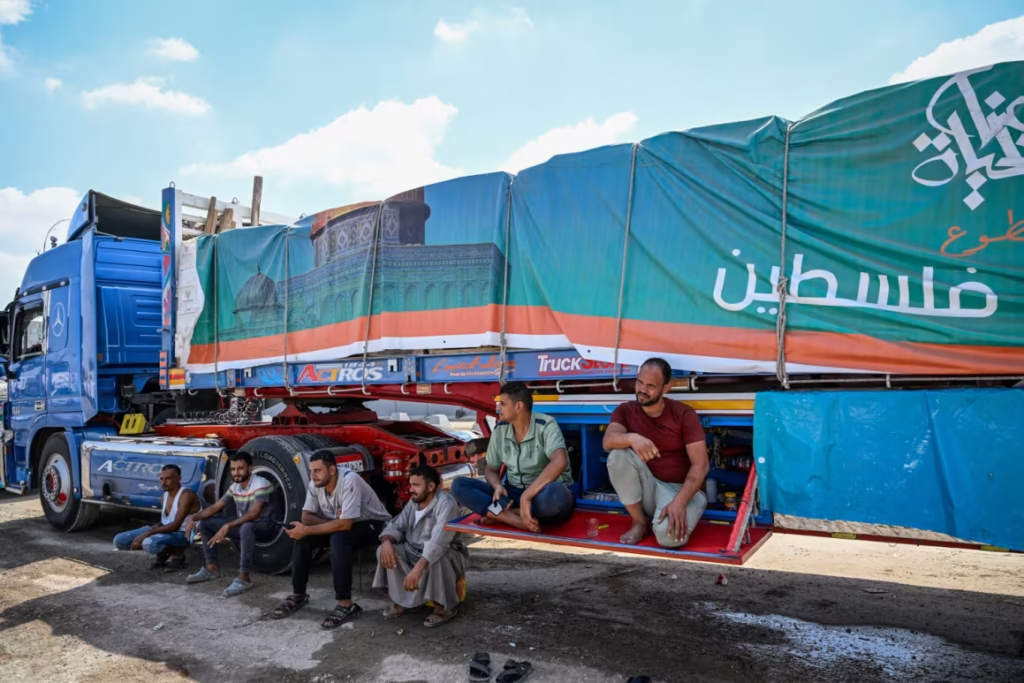he humanitarian crisis in Gaza is deepening as more than 5,000 aid trucks remain stranded at the Rafah border between Egypt and the Gaza Strip. Egyptian truck drivers, responsible for transporting food, medicine, and essential supplies, have described grueling waits lasting up to 20 days while Israeli authorities conduct lengthy and unpredictable inspections.
Drivers recount being subjected to repeated questioning about their cargo, with some told bluntly that their time had expired after weeks of waiting. Others report inspections that stretch for nearly 18 hours, leaving both the truckers and the aid they carry caught in limbo. For many, the delays are more than just frustrating—they represent life or death for civilians in Gaza who rely on these supplies.
The blockade of Gaza, tightened significantly since 2007, has long been criticized by humanitarian organizations as a form of collective punishment. With Gaza’s infrastructure already devastated by conflict, the inability to move aid quickly through Rafah threatens to worsen shortages of food, water, and medical supplies for the more than two million people living in the enclave.
Egyptian drivers at Rafah say they are facing enormous pressure, not only from the wait times but also from the burden of knowing their stalled deliveries mean thousands of families are left without essentials. One driver described the process as a moral struggle, saying that every wasted day translates into more suffering for ordinary people trapped inside Gaza.
International aid agencies have called for the immediate establishment of secure and reliable humanitarian corridors to prevent further catastrophe. But with political negotiations stalled and military operations ongoing, the Rafah crossing remains a stark symbol of the humanitarian cost of the blockade. For now, both the trucks and the people of Gaza are left waiting.


